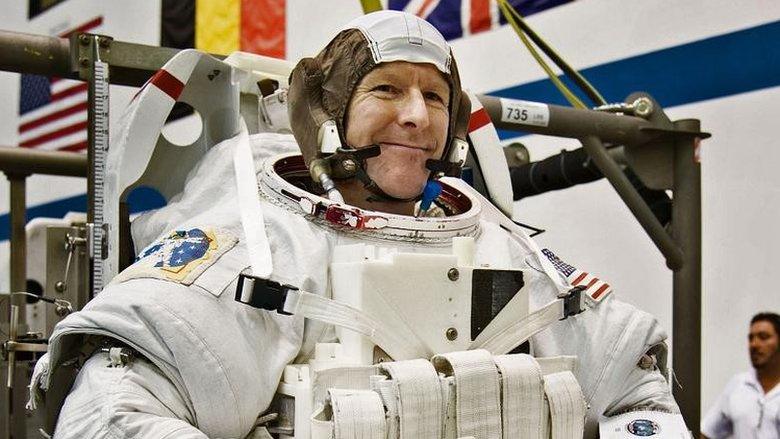Tim Peake: Science, housework and fun
- Published
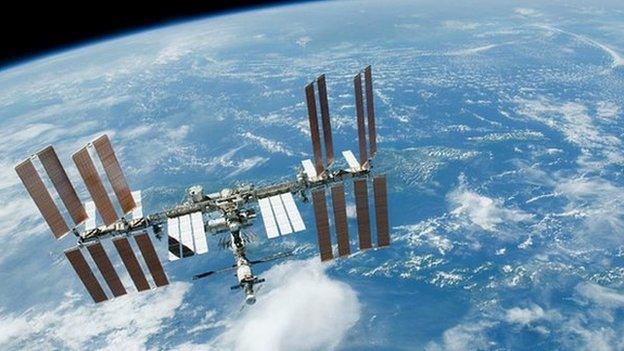
A name to celebrate UK science and ISS microgravity experiments might be "Newton"
In just over five weeks' time Tim Peake will be setting off for a six-month mission to the International Space Station (ISS). What is the aim of his mission and what will he be doing once he is in space?
What is the ISS?
The ISS is the largest orbiting laboratory ever built. The first stage was launched in November 1998 by the Russian federal space agency, Roscosmos. Since then, the US, the European, Japanese and Canadian space agencies have contributed 14 more modules, robotic arms and giant solar arrays. It is now the size of a football pitch and has the space of a six-storey house - palatial by the standards of human space exploration.
The space station project's primary purpose is to develop the capability to live and work in space. Its construction is arguably one of the greatest feats of engineering and international collaboration in human history. It paves the way for the construction of more complex structures in space, a permanent presence on the Moon, and missions to Mars and beyond.
Pallab Ghosh looks at the achievements and the future of the International Space Station
The decision to build it was also a masterstroke of US foreign policy. Coming at a time when the Soviet Union was crumbling, it was a means to make the Russians feel loved. It was also good for votes in the US, where taxpayers footed most of the estimated £100bn cost of construction.
Much of it was spent in politically important congressional states, providing jobs and giving the US's mighty aerospace industries something to chew on.
What happens on the ISS?
The ISS was built to carry out scientific experiments, external. Its location in orbit enables scientists to test out biological systems and grow new materials in microgravity.
Any research group can apply to have their experiment put on board the ISS. Those selected are put into compartments on the space station.
It's a common misconception that the experiments are conducted by the astronauts. In fact, most are monitored and run remotely by research institutes from the ground.
The astronauts change the experiment containers when required. But in terms of scientific research, their time is largely spent studying the effects of prolonged weightlessness on themselves.
They are the experiment.
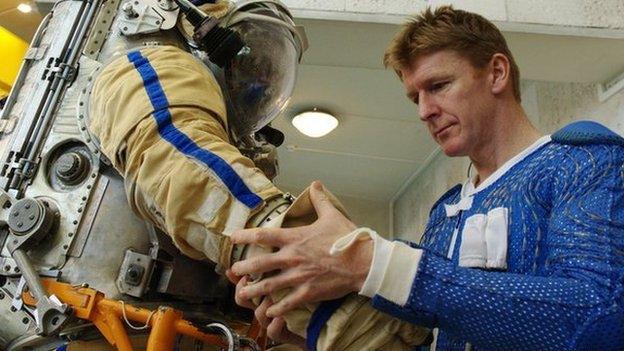
Tim Peake: "Humanity's aim is to explore the Solar System for the sake of our survival"
Most astronauts lose weight after a tour on the space station, despite the fact that they eat their usual intake of food and exercise normally.
Tim Peake will be having a special diet for a couple of days to see if this works better for him in space.
Doctors have noticed that microgravity also affects astronauts' eyesight. Occasionally, crews come back reporting that they have changes in vision while they are in space and some report permanent changes to their vision.
If space agencies have aspirations for astronauts to go on long-duration missions, for example to Mars, they will have to find ways to tackle these problems.
What will Tim Peake's routine be like?
Tim Peake will be working a normal working week - starting at about 08:00 and finishing at 18:00, Monday to Friday, with an hour off for lunch. The time zone in space is Universal Time, which is the same as GMT, so he will be in sync with people in the UK.
During the week, the bulk of his time will be spent on scientific experiments and maintenance of the space station.
On Saturday mornings, along with his fellow crew members, he will be involved in cleaning duties - it's a little known fact that parents across the world might find useful to pass on to their children, according to Libby Jackson of the UK Space Agency.
She said: "I love telling this to the kids - because just as they have to clean their rooms every weekend, the astronauts do the same thing!"
British astronaut Tim Peake shows the BBC's Pallab Ghosh around a detailed mock-up of the International Space Station's science lab
When he has done his chores he gets the rest of the weekend off. That is his time for calling his friends and family or relaxing and watching a film.

Tim Peake: Career in brief
Born on 7 April 1972 in Chichester, West Sussex.
He studied at Chichester High School for Boys, leaving to attend the Royal Military Academy in Sandhurst
After graduating, he served in the Army Air Corps and flew Apache helicopters
Retired from the Army in 2009 and was employed as a senior helicopter test pilot for AgustaWestland
Selected as a European Space Agency astronaut in May 2009 and completed basic training the following year.
Has been training for his six-month mission aboard the International Space Station, scheduled for launch on 15 December 2015
He enjoys skiing, scuba diving, cross-country running, climbing, and mountaineering, and he is interested in quantum physics and aviation

Will he be interacting with the public while he is in space?
Tim Peake says he wants education to be a legacy of his mission.
He hopes to use Saturday afternoons to broadcast to those interested in his mission. He has said on many occasions that he is really keen on using his mission as an opportunity to educate and inspire people about science and the wonders of space travel.
He will consume a meal designed by children for him to eat in orbit, and he'll grow seeds on the ISS to compare with plants grown by schools back home.
There will also be a fitness challenge, and a competition for five-to-19-year-olds to make a short film about space and exploration, which Tim Peake will get to watch.
He will also be giving interviews and using Twitter to share his experiences.
Will he be carrying out a spacewalk?
He is fully trained and the original plan involved a spacewalk for Tim Peake. But the schedule has been disrupted by problems in sending supply ships up to the ISS, and so it is unclear at this stage whether the planned spacewalk can be reinstated.
If, however, there are unexpected problems with components outside the space station then we may well see him moving around the exterior of the platform, making repairs.
Follow Pallab on Twitter, external
- Published19 May 2015
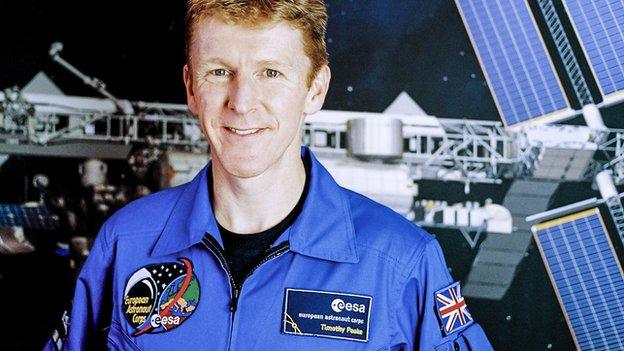
- Published14 March 2014
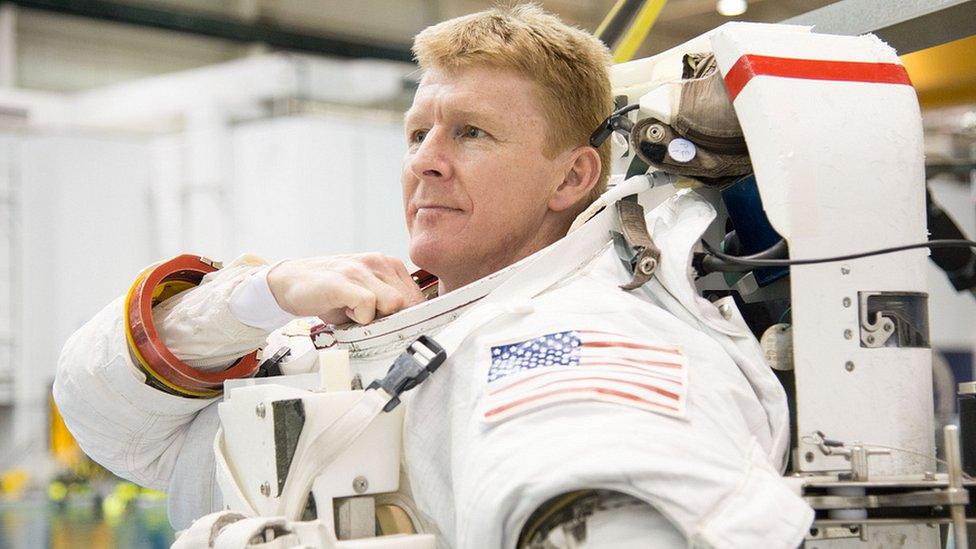
- Published24 January 2014
